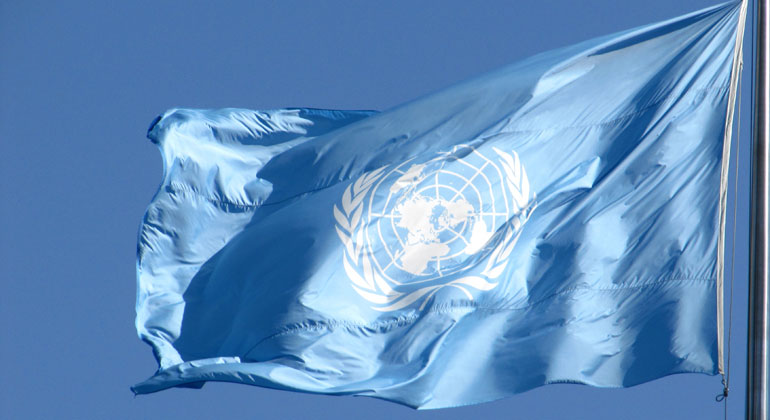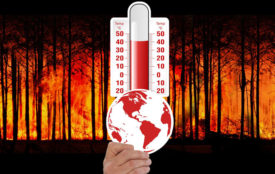The UN must be reformed
UN Secretary General Guterres, Ukrainian President Selenski and German Chancellor Scholz unanimously called for fundamental reforms of the UN these day
Most politicians in the world deplore the helplessness and powerlessness of the UN Security Council when it comes to war or peace. As long as the five permanent members of the Security Council can only pass unanimous resolutions and the USA, China, Russia, France or England have the right of veto, this so-called Security Council remains ineffective. The U.S. vetoed the Iraq war, Russia does not care about the UN in the war in Ukraine, and China does the same in its threat of war against Taiwan.
There is still no global authority to ensure order among the numerous states and governments. The united nations have rarely managed to unite the eight billion people as a world community or a world family. One welcome exception is the Paris climate agreement, which all 196 governments have agreed to. Only the U.S. under Trump had left, but it re-entered under President Biden on his first day in office.
To bring about a truly better world, nation-states should surrender some of their sovereignty and cede it to the UN world authority – a world pa a world judiciary, and a UN world police force. This would make it easier to stop wars and the arms trade than it is today with 196 sovereign governments. rliament regularly elected in free elections, a world executive and a world judiciary, and a UN world police force. This would make it easier to stop wars and the arms trade than it is today with 196 sovereign governments.
The chances would grow that terrorism could be fought, hunger overcome, the violation of human rights ended, and the world climate saved. Nation-states could reduce fear of each other with the authority of a world government. They could, as Costa Rica has exemplified, abolish bombs, missiles and tanks. The Sermon on the Mount, pointing toward a better world order, is the eternal voice of nature, enlightenment, reason, love, peace and hearts.
We may then again have the opportunity to leave our children and grandchildren a better world than we found it. We may have a unique chance to make world politics more intelligent than before and to learn that we are one humanity on one earth. The modern means of communication can and will be a great help in this.
All this is supposed to be impossible just because we have not succeeded so far?
We have abolished slavery and colonialism, in the industrialized countries we have abolished child labor and to some extent also discrimination against women, in Western Europe after 1945 we overcame war and the war economy, but also to a large extent poverty in the rich countries, and we are at least in the process of organizing the 100 percent switch to renewable energies.
Iceland and Costa Rica have already almost achieved this. Munich’s municipal utilities already have 95 percent green power in 2022 and want to be at 100 percent by 2025. The Rhine-Hunsrück district, with 100,000 inhabitants, already produces three times as much green electricity as the people there need. There is more to it than we often think. Through globalization, we are on the way to creating a world civilization. The G20 countries have just decided to triple the share of renewable energy by 2030. Kenya already produces 90% of its electricity renewably.
But what is taking the place of the old nation states?
In Europe, the United States of Europe is emerging, a European republic with strong regions. Today’s European Union still has major democratic deficits. There is a European market and a European currency, but no real European democracy yet. The continuation and deepening of the United States of Europe could be a democratically constituted world community. Democratization would be complemented by greater regionalization. The Bavarians could continue to be Bavarians, the Bretons could continue to be Bretons, the Scots, the Tyroleans, the Franks, the Basques, the Catalans, etc. could retain their regional identities and yet become citizens of the world. The regional identities could be strengthened and the national egoisms overcome.
The highest state goal of each region can become to serve the peace of the world in a united Europe. Pure utopia? Impossible – you think?
In the 19th century, the individual states in North America renounced parts of their sovereignty and united to form the United States of America. A similar process took place in Australia at the beginning of the 20th century and in Europe in the second half of the century. So why should it not be possible in the course of the 21st century for the whole world to organize itself into a world community?
Such a process of democratic globalization could bring peace, prevent wars, and bring economic benefits to all. If in the future power is based on ballots instead of tanks and missiles, the world will save a large part of the billions spent annually on armaments and destruction and can say goodbye for all time to the danger of nuclear war. The majority of people want neither war nor even nuclear annihilation and enthusiastically welcome such a cooperative development. Wars are not – as is often falsely claimed – in the nature of man.
UN Secretary-General Guterres told the United Nations General Assembly in September 2022 forcefully: “The world is burning. People are suffering. And the most vulnerable are suffering the most. I call for a coalition of the world for peace.”
That change and improvement are possible was proven in our time by Greta Thunberg, but also by none other than Mikhail Gorbachev.
Source
Franz Alt 2023 | Translated with www.DeepL.com/Translator (free version)








